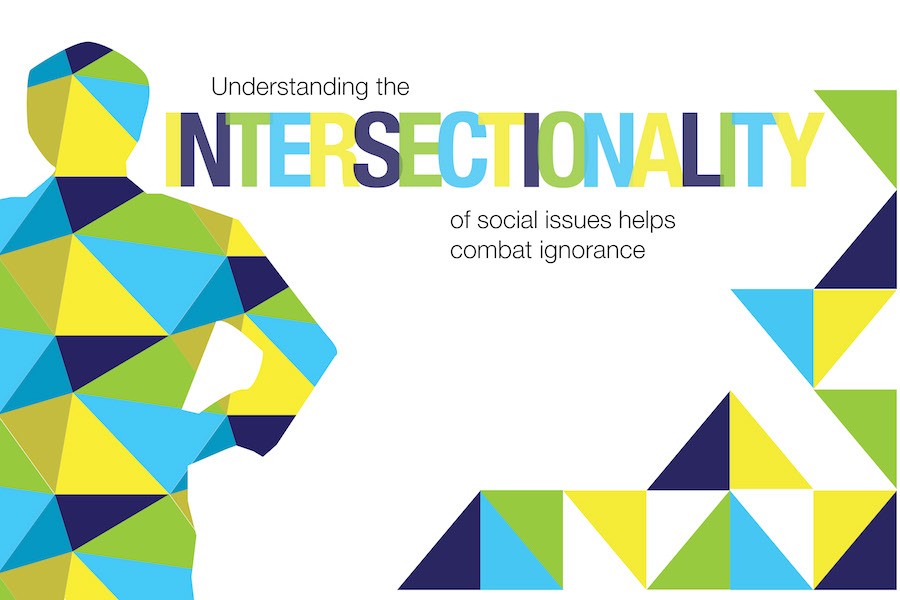Intersectionality
Understanding the intersectionality of social issues helps combat ignorance
November 2, 2015
Senior Sharon Moranga views intersectionality through the lenses of her everyday experiences.
“Certain groups of women have multi-layered levels in life that they have to deal with, and we all have different experiences in our groups,” Moranga said. “What white women go through isn’t the same as what black women go through.”
According to Enid Logan, a sociology professor at the University of Minnesota, intersectionality influences how people see others around them.
“(Intersectionality) is how our major social constructs or categories that we deal with – race, class, gender, sexuality, national origin, religion – relate to each other in how we experience them, and also how they help to stratify society,” Logan said.
According to Logan, the discussion of intersectionality begins with racial equality.
“I’m a black woman, and how I experience my Blackness and my race is different than how I would experience it if I were a black male,” Logan said. “Not because of factors such as biology or anything natural about femininity or Blackness, but more because of the ways these different constructs intersect in social life or society.”
Equity coach Arika Mareck said people must understand race before they can fully understand the way other forms of discrimination intersect, such as gender, social class and sexuality.
“Until we understand in our society – especially with the huge history of racial oppression – who we are as racial beings, it’s really hard to understand how it all connects,” Mareck said. “It’s not just about race, but that’s our starting point.”
Mareck said personal predispositions limit the ability to see other points of view, making it difficult to understand people beneath the surface.
“We have biases and experiences that shape how we view this world. We see things as we are, not as they are (to others),” Mareck said.

Naoia • Nov 14, 2018 at 10:10 pm
I am a spiritual activist… I try to keep things simple…. intersectionality sounds like a definition I combined several decades ago as a seeker of spiritual truth….
It was an art class … the word was Reality: my definition:
“Reality is ONE’S Mental, Emotional and Physical Experiences…!”